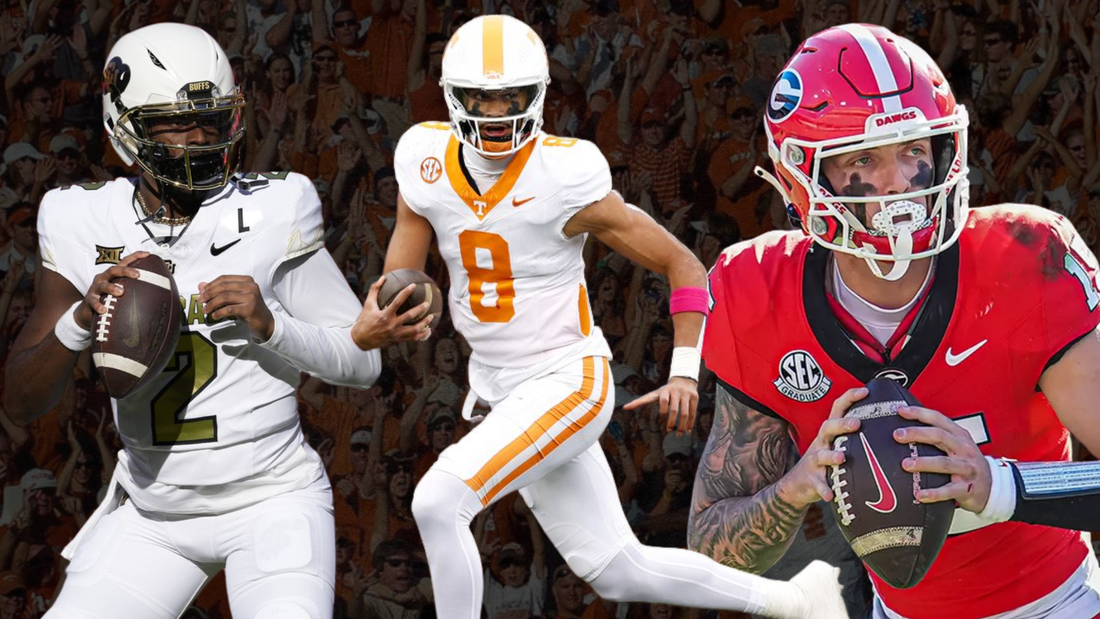The college football world reeled when Nico Iamaleava, Tennessee’s sophomore quarterback and 2024 College Football Playoff starter, announced his transfer to UCLA on April 20. The move, catalyzed by a contentious NIL negotiation and a fractured relationship with Tennessee, marks one of the most high-profile portal acquisitions of the offseason. But beyond the headlines lies a complex narrative of financial stakes, roster dynamics, and a homecoming with high expectations.
The Tennessee Breakdown
Iamaleava’s departure from Tennessee was anything but amicable. The quarterback, who threw for 2,616 yards and 19 touchdowns in his first full season as a starter, sought to renegotiate his NIL deal—reportedly valued at $2.2–$2.4 million annually—to nearly $4 million. Tennessee balked, and by April 11, Iamaleava had missed practice, signaling an irreparable rift. “I’m proud of the stance we took as a university,” former Tennessee athletic director Phillip Fulmer told The Athletic, framing the split as a principled refusal to capitulate to escalating financial demands.
However, conflicting narratives emerged. A source close to Iamaleava’s camp claimed the quarterback prioritized roster improvements over compensation, citing concerns about Tennessee’s offensive line and receiver corps. Yet ESPN’s Pete Thamel reported Iamaleava’s representatives had pushed for the raise as early as January, even probing Oregon’s interest before the Ducks declined. The disconnect underscores the opacity of NIL negotiations and the challenges programs face in balancing athlete empowerment with fiscal responsibility.
Why UCLA? Homecoming Meets Opportunity
For UCLA, landing the No. 1 transfer portal prospect (per 247Sports) is a coup. The Bruins, coming off a 5-7 debut season under head coach DeShaun Foster, ranked 120th in scoring offense (18.4 points per game) and 123rd in total offense (298.8 yards per game) in 2024. Iamaleava’s arrival injects star power into a unit desperate for stability.
The Southern California homecoming angle is undeniable. A Long Beach native, Iamaleava was heavily recruited by UCLA out of high school before choosing Tennessee. His younger brother, Madden, initially committed to UCLA in 2025 before flipping to Arkansas, adding a familial subplot to the transfer. “I trust God’s timing, and I believe He’s leading me where I need to be,” Iamaleava wrote on Instagram, framing the move as both pragmatic and spiritual.
The Joey Aguilar Conundrum
Iamaleava’s transfer complicates UCLA’s quarterback room. The Bruins had already secured Appalachian State transfer Joey Aguilar in December, a proven passer with back-to-back 3,000-yard seasons. Aguilar, a California native, seemed poised to start after Ethan Garbers’ departure. Now, Foster faces a delicate balancing act.
“Coaches have told the team’s quarterbacks they plan to add Iamaleava,” per CBS Sports, signaling a likely QB1 designation. Aguilar’s future is murky, with insiders speculating he could re-enter the portal. The situation highlights the cutthroat nature of modern roster management, where even productive transfers can be rendered expendable overnight.
The Financials: What’s the Real Number?
Reports on Iamaleava’s UCLA compensation vary widely. Front Office Sports estimates a $1.5 million annual deal, a significant drop from his Tennessee earnings and far below the $4 million he sought. However, this figure remains unconfirmed, and UCLA’s NIL collective has yet to disclose terms.
The discrepancy raises questions about Iamaleava’s market value. While his 63.8% completion rate and playoff pedigree are attractive, his 200-yard passing ceiling against SEC defenses (exceeded just twice in nine games) gives some pause. Add in a UCLA offensive line that allowed 35 sacks in 2024 (t-86th nationally), and the risk-reward calculus becomes even thornier.
The Bigger Picture: NIL’s Reckoning
Iamaleava’s saga epitomizes the NIL era’s growing pains. High-profile athletes now wield unprecedented leverage, but as Tennessee’s resistance shows, programs are pushing back against what they view as unsustainable demands. “This was a high-water mark in the early NIL era,” CBS Sports noted, framing the standoff as a cautionary tale for collectives.
For UCLA, the gamble is clear: Iamaleava’s pedigree could accelerate Foster’s rebuild, but his arrival risks locker-room friction and financial overextension. As one SEC analyst quipped, “You’re not just buying a QB—you’re buying drama”.
What’s Next?
Iamaleava will work with new UCLA offensive coordinator Tino Sunseri, a rising coaching star known for developing efficient passers. If Sunseri can refine Iamaleava’s pocket presence and decision-making—his 2.96-second average time to throw ranked 110th nationally—the Bruins could surprise in the expanded Big Ten.
Yet the pressure is immense. With a fanbase starved for relevance and a staff fighting to keep its job, Iamaleava isn’t just a player—he’s a litmus test for whether NIL’s promises can translate to wins. As Foster put it in March: “We’re building something special here.” Now, Iamaleava must prove that “special” isn’t just another recruiting pitch.



































































